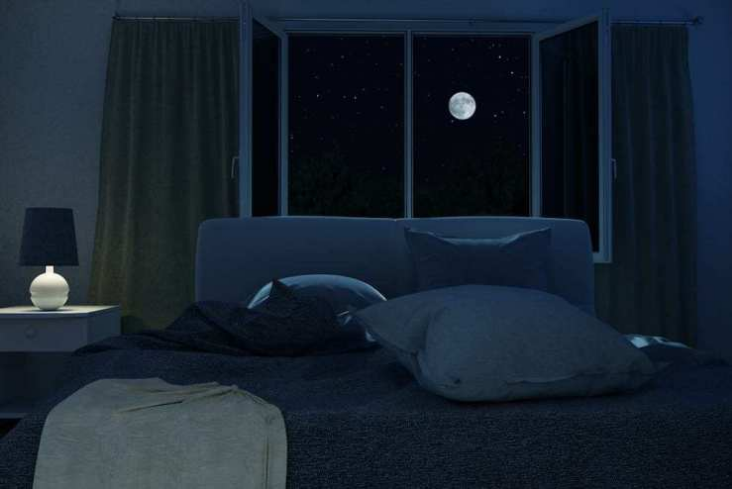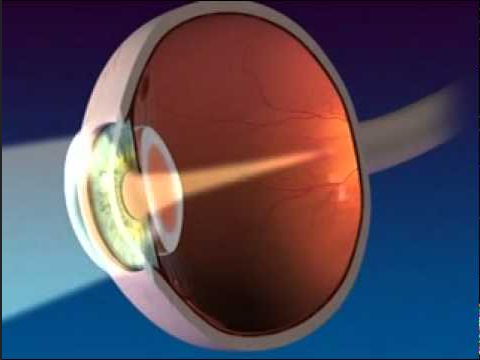How I Regained My Vision
Thanks to Allah
"I went from needing Glasses for near sightedness to fully recovering and not having to wear them again.
I did get proof of this due to having to take a driver's license exam at the time, and when the doctor found that I had good vision,
I was legally not required to wear glasses while driving."
In short
Your eyes, like the rest of your body, are very effecient. If you are constantly using them for short distances, they will respond
by being more effecient at close distances at the expense of long distance. This is because your actions and habits are showing
that most of your needs for survival are at short distances.
Your Eyes are like a camera, if you know that you will be sitting infront of a camera one meter away, you can manually lock the focus at
that spot. However if you are going to film a butterfly a few centimeters away from you and then a horse that is 10 meters away, a locked
focus at a specific distance will have everything not at that point be out of focus, or "blurry".
The Solution is to have your camera be on Auto-focus, able to go from short distance to long distance, depending on what you want to see
clearly. Your eyes are the same way. If you have Myopia or near sightedness, your eye's focus mechanism is locked, you simply need to unlock
it. This is done through habit over time. If your actions over time tell your body that you need to see at longer distances then it will adapt.
Have you seen the guys that go to the gym and for the most part only work their biceps? That movement overtime locks their arms in that
bicep curl position. In order to unlock that muscle they need to stretch and work the opposite muscle movements. This is the same with our
eyes.
Furthermore, if you injure your arm while exercising, you can wear a cast or a sling, and if you injure your leg, you can use crutches, they will be
beneficial at first, but overtime, if you become dependant on them, your natural abilities will decay, only when you start using your arm or legs do they
start to regain their proper function. The same applies for glasses and your eyes. There is a place for glasses, just like there is a place for crutches.
However, the use is meant to be short term, and for specific rehabilitating purposes.
In short, You either use your eyes' natural ability to see longer distances or you lose it, becoming dependant on glasses.
Also, What many fail to take into account is that, once you rely on glasses for vision, your vision does not maintain, it continuelly degrades over time,
leaving the user having to get stronger and stronger prescriptions just to see at that same level.
How to feel it
Look at the moon when everything around you for the most part is dark. When the moon is the only thing to focus on, you will feel your eye's
natural autofocus in action, going in and out of focus. This is what we want to happen when we are looking at a street sign that is 25 meters away for example.
Another way is to look at something, a word for example, at a distance where you can comfortably read it. Next, go slightly further away where
you can read it but it appears slightly blurry. Stay at that distance for a while and relax your eyes while blinking naturally and you may start to see it become clear.

How to do it
I spent many years trying to find the answer, and I found the answer to be scattered in many areas and not in one location. I had to waste my time and energy experimenting and researching, you will not have that problem.
Here it is in one location:
*Having a habit of using long distance vision (at least 8 meters away, for 2 hours a day for example)
*Having a habit of activating wide angle vision (peripheral vision), also called 'soft eyes'
*Having a habit of not straining the eyes (long hours on the computer, etc., without breaks)
*Having a habit of picking a point to look at while moving and at the same time noticing the differing points (trees that appear to move past you etc) between you and that far away point (the horizon for example). This is also called Triangulation, where you see your far away point, and you also see for example that tree to the right of it but closer to you than it, and that light pole to the left of it, further away from the tree, but still before that far away point. All of this while there is movement, such as walking.
*Having a habit of challenging your eyes with slightly blurry vision (at a distance just abit further away, or using a slightly smaller font), to then refocus it into clearness.
*Having a habit of being relaxed and calm while looking at longer distances. You may find that you will feel anxious when trying to read a street sign far away, notice that, and relax.
*Having a habit of not wearing glasses, and to only wear them for safety such as while driving, or to decrease your prescription over time, until you no longer need them.
The details to the above bullet points are found here:
https://www.youtube.com/channel/UCEhYxefHylpSgoiXDWcBrlA
https://www.youtube.com/watch?v=RfO0x9uIkTQ&list=PLeCMp-A4KFJChf7GDpdenB-HFafkX1Qjn
https://www.youtube.com/channel/UCHdhi8gzARec7IrzK98FIkA

The Science
The following is taken from Endmyopia.org.
"Myopia Is Not A Genetic Illness.
If you are serious about your eyesight, you will want to look into the biology of vision, and the science behind myopia. And while there are thousands of studies worth reading, I link two here to start with. These are two PDFs here which reference several hundred ophthalmology studies, PhD opinions, and many years of research.
Start With These Studies.
The two PDF links below do a good job summarizing the current state of myopia science. Well referenced and providing a big picture perspective, these PhD scientists will help you understand what is known about myopia."
